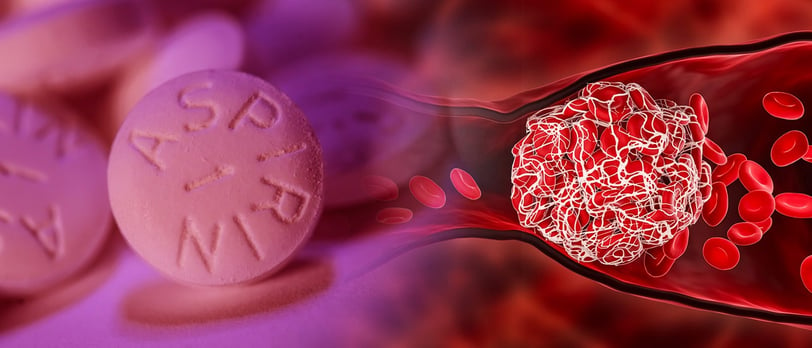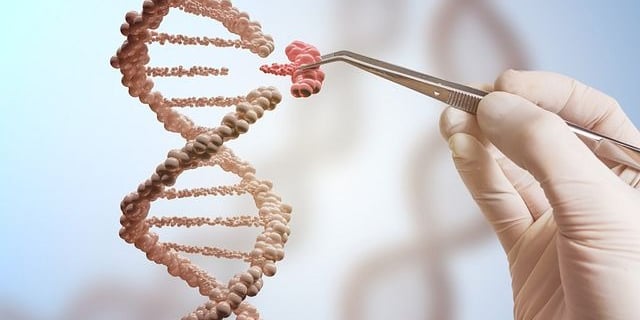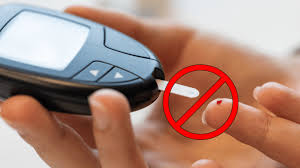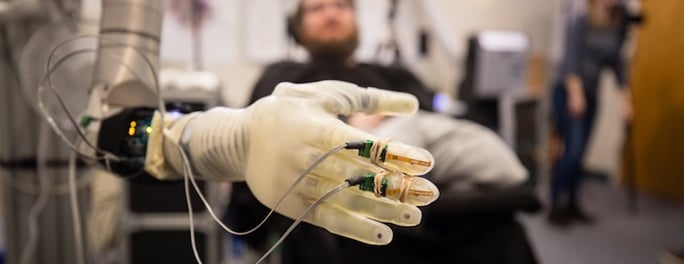Discoveries in Medicine
ARCHIVED ARTICLE
Francine Grace R. Mancelita
3/25/2024

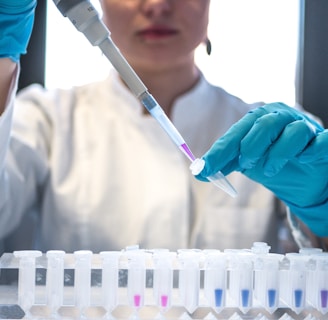
Photo provided by Unsplash from: Julia Koblitz.
With the ongoing rise of technology and innovation, groundbreaking discoveries seem to come from everywhere all at once. Here’s a rundown on some of the mind-blowing breakthroughs in medicine that may potentially change the world and life as we know it:
1.Neural controlled artificial limbs
Prosthetic limbs may soon be controlled by the human brain without neurogenesis, or the synthesis of neurons. A new method was proposed with the use of decoding neural cell signals associated with limb movement. This basically means artificial limbs can be controlled with a simple thought.
Sensors implanted in the brain’s motor or pre-motor cortex can be coded to give the patient total control over prosthetic limbs. Researchers are currently working on state of the art brain-machine interface algorithms along with the combination of several techniques to finally make bionic arms and legs a reality.
(Reference: Top 8 medical breakthroughs in 2023. Regeneration Center. (2023, January 16). Top 9 Medical Breakthroughs in 2024)
2. Non-invasive remote glucose monitoring
Yes, you read it right. Patients with diabetes may no longer need to prick their fingers to get a single blood drop every time they monitor their glucose levels. Needles and lancets might finally be replaced by non-invasive skin-top biosensors that automatically measure insulin levels. These biosensors report results real time too, requiring little to no effort (and pain) from the patient.
Other techniques such as spectroscopy, radio frequency identification (RFID), and artificial intelligence (AI) that links directly to a phone app are also in the works. It’s safe to say the future for non-invasive glucose monitoring is looking really bright.
(Reference: Top 8 medical breakthroughs in 2023. Regeneration Center. (2023, January 16). Top 9 Medical Breakthroughs in 2024)
3. Breast milk lipid to reduce cerebral palsy in infants
Cerebral palsy is caused by abnormal development or damage to the developing brain affecting a child’s ability to control his or her muscles (CDC, 2023). These neurological deficits are attributed to white matter loss in the brain. However, a research using neonatal mice suggests that a fatty molecule found in breast milk triggers stem cells in the brain to create new white matter, reversing the injury.
Clinical trials are yet to be conducted, but through this discovery, therapy and treatment using this isolated lipid can mean huge developments in fighting this disease which currently has no known treatment.
(Reference: Duke University Medical Center. (2023, August 3). Newly identified lipid in breast milk might reduce cerebral palsy in infants: In animal studies, the fat molecule encourages stem cells to generate new cells that produce the brain's white matter. ScienceDaily. Retrieved August 8, 2023 from Newly identified lipid in breast milk might reduce cerebral palsy in infants)
4. Irregular sleep patterns associated with harmful gut bacteria
No fixed sleep schedule? Then this might be for you. A research from King’s College London has found that irregular sleep patterns are linked to harmful bacteria in the gastrointestinal tract. The study has found multiple associations between shifts in sleeping patterns and gut microbiome composition.
Although it is known that major changes in the body clock increases the risk for weight gain, heart problems, and diabetes, it is also worth noting that even the small inconsistencies in sleeping patterns affect our biological rhythms, which eventually takes a toll on diet quality and diet habits.
(Reference: King's College London. (2023, August 2). Irregular sleep patterns associated with harmful gut bacteria. ScienceDaily. Retrieved August 8, 2023 from Irregular sleep patterns associated with harmful gut bacteria)
5. Aspirin as substitute for blood thinner injection for fracture patients
Patients admitted for bone fractures are usually given the blood thinner heparin to prevent blood clots. However, a study from the University of Maryland School of Medicine found that this can be substituted by over-the-counter aspirin.
Aspirin is a nonsteroidal anti-inflammatory drug used to relieve pain, fever, and inflammation. It is also antithrombotic, the very property that allows it to prevent blood clots from forming. Making the switch from heparin to aspirin would mean that patients would no longer have to be injected with the blood thinner, which is also much more expensive than simply taking an oral administration of an OTC drug.
(Reference: University of Maryland School of Medicine. (2023, January 18). Aspirin as effective as blood thinner injections to prevent deadly complications in patients hospitalized with bone fractures: Multi-center trial of more than 12,000 orthopedic trauma patients likely to change standard of care. ScienceDaily. Retrieved August 8, 2023 from Aspirin as effective as blood thinner injections to prevent deadly complications in patients hospitalized with bone fractures)
6. Gene editing / manipulation using CRISPR
Of course, who can forget CRISPR technology? Short for Clustered Regularly Interspaced Short Palindromic Repeats, CRISPR is a technique to alter human DNA by cutting out the defective genes to edit or repair genetic diseases.
CRISPR is a part of the bacterial immune system with a defense mechanism consisting of a set of enzymes known as CAS (CRISPR-associated proteins). These CAS enzymes accurately cut and replace DNA sections from viruses invading the bacterium’s system. Applying this to the human genome would allow scientists and health workers to target inherited diseases like sickle cell anemia, thalassemia, and hemochromatosis.
(Reference: Top 8 medical breakthroughs in 2023. Regeneration Center. (2023, January 16). Top 9 Medical Breakthroughs in 2024)
7. Fragrance method produces major memory boost
Neuroscientists at the University of California, Irvine observed a 226% increase in cognitive capacity in older adults when a fragrance wafted through their bedrooms for two hours every night for six months. Simply put, by smelling the fragrance, they seemed to remember more.
This research strengthens the well known claim that smell and memory have a solid tie. But more importantly, the study proves that this tie can be transformed into an easy, non-invasive technique for strengthening memory and potentially deterring memory-loss as in Alzheimer’s and Parkinson’s disease.
(Reference: University of California - Irvine. (2023, August 1). Sweet smell of success: Simple fragrance method produces major memory boost: Research into aromas while sleeping sparks 226% cognitive increase. ScienceDaily. Retrieved August 8, 2023 from Sweet smell of success: Simple fragrance method produces major memory boost)
8. Insect protein to slow weight gain and boost health
Thoughts on eating worms? You might want to think twice. Researchers from the University of Illinois found that replacing traditional protein sources with mealworms in high-fat diets in mice could slow weight gain, improve immune response, reduce inflammation, enhance energy metabolism, and beneficially alter the ratio of good to bad cholesterol.
Lead Study Author Kelly Swanson says that mealworms are a high quality, highly digestible, and enviromentally sustainable protein source. Metabolic benefits from mealworms may be associated with the chitin that makes up the exoskeleton of all insects, which seems to act like a fiber that stimulates beneficial microbial activity in the gut. Protein shortages are slowly becoming a reality after all, so it might not be a very wild idea to set sights on alternative meat sources.
(Reference: University of Illinois College of Agricultural, Consumer and Environmental Sciences. (2023, July 26). Insect protein slows weight gain, boosts health status in obese mice. ScienceDaily. Retrieved August 8, 2023 from Insect protein slows weight gain, boosts health status in obese mice)
